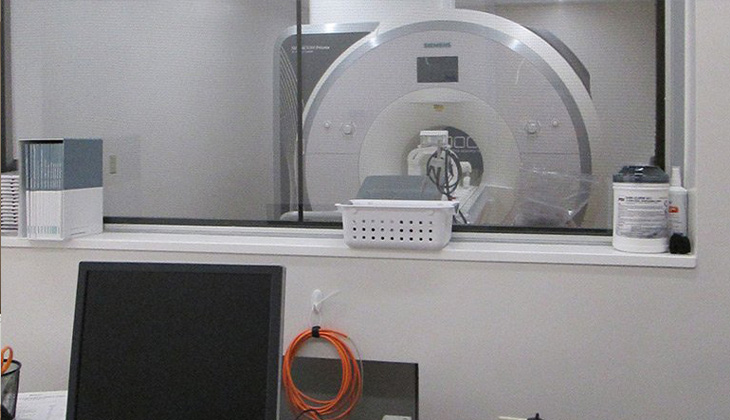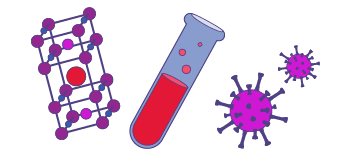
This instrument,3 T/60 cm Siemens Prisma, is located at the MagLab's AMRIS Facility at the University of Florida in Gainesville.
This state-of-the-art 3T Siemens Prisma whole body scanner includes simultaneous multi-slice (SMS) techniques for functional MRI (fMRI) and diffusion imaging (dMRI) as outlined in the Human Connectome Project, and techniques for magnetic resonance elastography (MRE), as well as whole-body scanning. The system facilitates cross-compatibility with MRI/S facilities at other institutions for multi-center studies, and alignment of University of Florida imaging with big data multi-site studies for Alzheimer’s disease, Parkinson’s disease and the National Institutes of Health's Adolescent Brain Cognitive Development (ABCD) Study. Whole body scanning capabilities enable needed correlative measurements in obesity, diabetes, osteoarthritis, aging and dystrophy studies.
The Siemens Prisma includes a 3-tesla magnet, includes an unmatched 80 mT/m @ 200 T/m/s gradient system, parallel transmit capabilities, a series of MR coils and pulse sequence packages for advanced MR imaging and spectroscopy research of human neuro, body and MSK systems. The SMS techniques and powerful gradients with a combined effective strength of 139 mT/m and a maximum slew rate of 346 T/m/s enable higher resolution brain studies in a shorter period of time.
The following 3rd party coils are available for research use. Interested users should contact Dr. Jens Rosenberg.

Explore our magnet schedule to see what exciting research is happening on our stellar fleet of instruments right now.
Investigators should discuss their project with Dr. Jens Rosenberg to review their needed protocol and make sure the needed instrumentation and techniques are available. I.e. hardware exists, protocols may be put together readily, and that sufficient protocol development and/or validation time is allocated. If necessary, Dr. Rosenberg can assist in developing an imaging protocol based on specific needs of a project; it is important to realize that optimizing a specific protocol for a particular project is critical to obtaining significant data.
During the first year of operation, the AMRIS Facility has allocated development time for all funded projects to implement and test protocols on the Prisma. This time can be scheduled by Tammy Nicholson or Dr. Lai.
If the hardware required for a project does not exist and/or the necessary MR protocols or sequences are not currently available on the Siemens 3T, Dr. Rosenberg will discuss options for acquiring the needed hardware, sequences and/or developing the required protocol. If the needed MR techniques and protocols are not already available on our scanner and will require Dr. Rosenberg's time to develop them, the grant application budget must include Dr. Rosenberg's time as an MR physicist in addition to any funds needed for acquisition of the hardware and/or software.
Investigator(s) are also encouraged to review with Dr. Rosenberg their needs for processing and analysis of data acquired on the 3T MRI/S scanner in order to ensure sufficient resources are allocated for this purpose in grant applications.
Last modified on 06 October 2023